What is an oil seal?
An oil seal, also known as a shaft seal or radial lip seal, is a mechanical component designed to prevent the leakage of lubricants and exclude contaminants in rotary applications. Typically, an oil seal consists of an elastomeric sealing element, a metal case, and often a spring to enhance sealing performance. These seals are crucial in various industries, including automotive, manufacturing, and industrial machinery, to ensure the longevity and efficiency of mechanical systems.
Oil seals are categorized based on their design, application, and the specific requirements of the machinery they serve. Some common types include:
- TC Oil Seal: Features a double-lip design with a garter spring, providing effective sealing against contaminants.
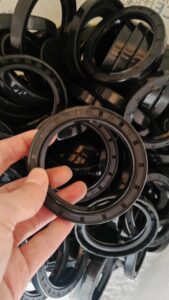
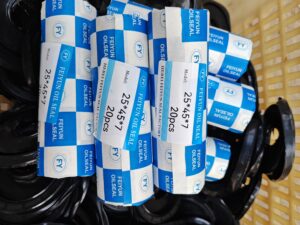
- High-Pressure Oil Seal: Designed to withstand high-pressure environments, these seals are commonly used in hydraulic systems to prevent fluid leakage.
- TCV Oil Seal: Similar to the TC seal but optimized for high-pressure applications, often used in hydraulic pumps.

- TCN Oil Seal: A high-pressure seal designed for demanding applications, providing robust sealing performance.
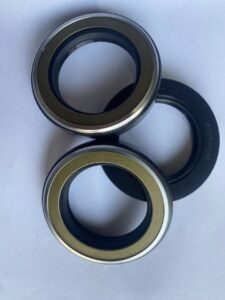
- Hydraulic Oil Seal: Specially engineered to handle the pressures in hydraulic systems, ensuring reliable operation and preventing leaks.
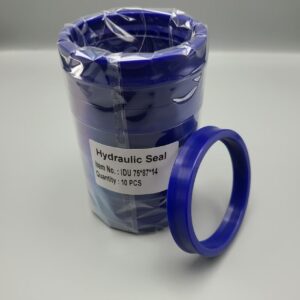
- Car Oil Seal: Used in automotive applications to prevent oil leaks from engine components, maintaining lubrication and preventing contamination.
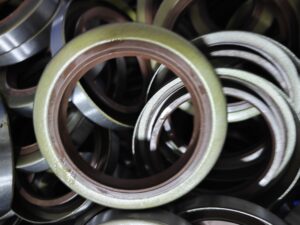
- HTCR Oil Seal: Designed for high-temperature and high-pressure environments, suitable for heavy-duty applications.
- TB Oil Seal: Features a double-lip design with a spring, commonly used in automotive and industrial applications.
- TA Oil Seal: A single-lip seal with a garter spring, typically used in low-pressure applications.
- Power Steering Oil Seal: Ensures the integrity of power steering systems by preventing fluid leaks and keeping contaminants out.
- Combination Gasket: Integrates the functions of a gasket and an oil seal, providing a dual sealing solution in certain applications.
- Washing Machine Oil Seal: Prevents lubricant leakage in washing machine motors, ensuring smooth operation and longevity.
- Crankshaft Oil Seal: Seals the interface between the crankshaft and the engine block, preventing oil leaks and contamination.
- Viton Oil Seal: Made from Viton rubber, these seals offer excellent resistance to high temperatures and aggressive chemicals.
- Lip Seal: A type of seal with one or more lips that press against the shaft, providing a dynamic seal to prevent leakage.
- National Oil Seal: A brand known for producing a wide range of oil seals for various applications, including automotive and industrial uses.
- Oil Seal Motor: Seals used in electric motors to prevent lubricant leakage and protect against contaminants.
- Oil Seal TC Type: Refers to the TC design, which is widely used due to its effectiveness in sealing and contaminant exclusion.
- Drive Shaft Oil Seal: Seals the connection between the drive shaft and the transmission or differential, preventing fluid leaks.
- Automobile Oil Seal: Seals used in various parts of vehicles to prevent oil leaks and protect components from contaminants.
- Toyota Oil Seal: Oil seals specifically designed for Toyota vehicles, ensuring proper fit and function.
- Hub Seal Truck: Seals used in the wheel hubs of trucks to prevent grease leakage and keep out dirt and water.
- Cassette Oil Seals: Seals designed in a cassette-like structure, often used in wheel hubs and other applications requiring robust sealing.
- Hub Oil Seal: Seals used in wheel hubs to prevent lubricant leakage and protect against contaminants.
- Auto Oil Seal: Generic term for oil seals used in automotive applications to prevent leaks and protect components.
- CR Oil Seal: Oil seals made from CR (chloroprene rubber), known for their good oil resistance and flexibility.
- Oil Seal FKM: Oil seals made from FKM (fluorocarbon rubber), offering excellent resistance to high temperatures and aggressive chemicals.
- Oil Seal Car: Oil seals specifically designed for automotive applications, ensuring proper sealing and protection.
- Power Steering Seals: Seals used in power steering systems to prevent fluid leaks and ensure smooth steering operation.
- Power Steering Seal Kit: A kit containing all necessary seals for servicing a power steering system.
- Steering Oil Seal: Seals used in steering mechanisms to prevent fluid leakage and protect against contaminants.
- Power Steering Rack Seals: Seals specifically designed for the steering rack in power steering systems, preventing leaks and ensuring smooth operation.
- Oil Seal China: Refers to oil seals manufactured in China, which are widely used globally due to their quality and affordability.
Materials Used in Oil Seals
The performance and durability of oil seals are significantly influenced by the materials used in their construction. Common materials include:
- Nitrile Rubber (Buna-N): Known for its excellent heat resistance and durability, Nitrile is a versatile material suitable for a range of applications.
- Viton (FKM): Excels in high-temperature environments and offers strong resistance to chemicals and heat.
- Polyacrylate: Resists petroleum oils and fuels, transmission fluid, and performs well in environmental conditions.
- Silicone: Resistant to mineral and vegetable oils, salty solutions, and various environmental conditions.



Leave A Comment